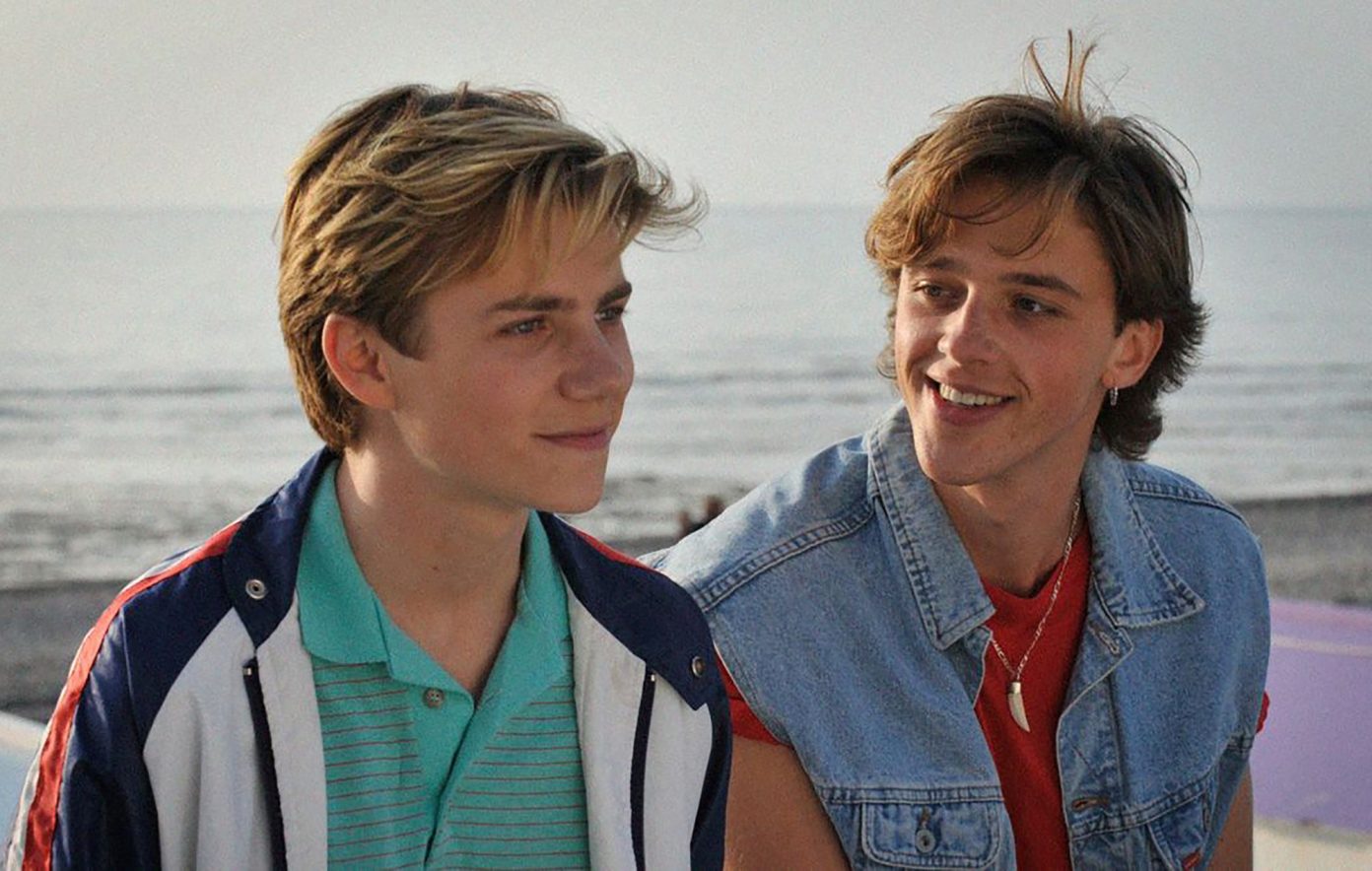Written by Mackenzie Stolp
This film had so much promise. A same-sex love story set in the French beach-side town of Normandy in the 1980s – sounds like pure perfection, right? Instead, we get another gay-tragedy that focuses on death and belittles two men in love to a chaotic affair that was doomed from the beginning.
From the start of this film, we know it has a tragic ending where someone has died and from there on, we are constantly reminded of death. As we watch the two young lovers Alex and David grow together and their relationship bloom, we are unfortunately unable to relish in the joy of seeing a young couple fall in love – because we know that ends terribly for them. Alex has an obsession with death, but this obsession adds no depth or intrigue to his character it just works as a continuous reminder that David will die – that knowledge is omnipresent and overshadows the entire film. Foreshadowing is a clever tool when used sparsely and as a nudge to the progression of the plot, not as the entire story. This was not a story about grief, mourning or love – it was a cheap shot at a tragic love story that fell completely flat. Alex and David’s love story was rushed and surface-level to make space for the constant flash-forwards to Alex mourning David.
By painting the love story of two young men as cursed and destined to fails instils the idea that all gay romances are tragic and will be a journey of hardship – not one of love and companionship. Obviously within our current society homophobia is very much present and for many young couples it can be tragic – but reinforcing the idea that this is the truth for every relationship is incredibly damaging.
In particular, the relationship between Alex and David’s mother is particularly concerning. At the beginning of the film Alex and David’s mother, Mrs Gorman is overly friendly and forward. She invites Alex into her home, she lets him bathe and views him naked, and she also gives Alex a job working within her store. Mrs Gorman’s acceptance of Alex accelerates his and David’s relationship. However, after David’s death, Mrs Gorman blames Alex not only for his death, but punishes Alex for the relationship he had with her son. Within one moment she screams at him “He’d be alive if it wasn’t for you”. The inclusion of Mrs Gorman’s character plays into the pre-existing parental fears that heterosexual parents impose on their gay children. Parents can be the largest culprits of homophobia and shame on their children, and having the main parental figure of this film so enriched in homophobia and shame will only solidify the fear that young men have in sharing their relationships with their parents.
Even the setting of the 1980s, while it provided a stimulating visual aesthetic, was a very clear choice to make this film as tragic as possible. To set a same-sex love story during the height of the AIDS crisis, a time where crime against gay men was rife and homophobia omnipresent, just reinforces the idea that this film’s intention was to create a gay tragedy without any form of analysis or reflection on why projecting gay tragedies is damaging. Once again, same-sex love stories can be traumatic and tragic, but we need films to uplift and inspire young gay men – to let them know that their love will not end in death.
Although visually beautiful, unfortunately Summer of 85’ reduces same-sex love to a destined tragedy that no one can escape from. This is not a display of desire or teenage recklessness; this film just reinforces current ideals about the dangers of gay relationships.
I will give this film one thing– the club scene where Alex dances to Rodd Stewart’s Sailing was incredibly beautiful and a shining star amongst the trauma.


